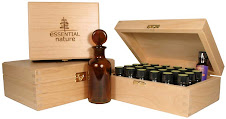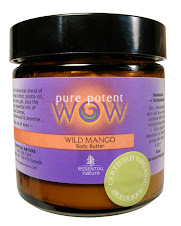Traditionally, the marjority of essential oils are steam distilled.
The plant material is placed into a still; steam is then passed
through, which causes the oil to vaporize, the mixture of
steam and essential oil then passes through a series of
cooling tubes in order to condense the mixture back to a
liquid form. This distillate is then traditionally collected in a
Florentine flask which further separates the essential oil from
the water based hydrosol. Hydrosols or floral waters such
as Rose or Lavender are often used when a more gentle
treatment is needed.
Cold Pressed (CP)
Citrus oils, such as Pink Grapefruit, Orange and Lemon are
cold-pressed. Anyone who has ever peeled an orange has
seen the essential oil spray out in a fine mist. Mechanical
abrasion is used to pierce the tiny essential oil “cells” on
the surface of the peel. The fruit and the peels are then,
simultaneously, pressed to create a solution of pulp, juice,
natural waxes and essential oil, that is then separated by
centrifuge. Chemical residues from traditional citrus fruit
farming remain through the cold-pressed process, therefore
it is very important to choose organic citrus oils whenever
possible.
Most cold pressed citrus oils especially Bergamot, Grapefruit,
Lemon & Lime contain a compound called bergaptene that
can make you photosensitive to sunlight. For safety we offer
an organic Bergamot that is Furocoumarin (Bergaptene) free.
Redistillation (RD)
Redistillation or “rectification” is used with certain essential
oils to remove any impurities or unpleasant heavy odors,
making it smell more like it did in its natural state in nature.
Eucalyptus Globulus and Peppermint are often redistilled to
create aromas that have a more pleasing and “clean” scent
quality.
Solvent Extraction (SD):
Certain plant fragrances, such as Jasmine, are so delicate
they need to be extracted using solvents such as hexane. The
plant material is submerged in the solvent which extracts out
a solution of essential oils, natural plant waxes and pigments;
then under a low heat the extract solution is placed in a
distillation vessel to boil off the solvent, thereby creating a
“concrete”. The concrete is then warmed in alcohol to dissolve
the essential oils. This mixture is then cooled to cause the
nonvolatile & insoluble matter to precipitate out. The alcohol
solution is further distilled at a very low temperature until
just the ”absolute” is left, giving us the final product. Industry
standards dictate the relative safe use of volatile hydrocarbon
of hexane and permissible levels of 10ppm; at these levels
absolutes would have to be used in excess to do any harm.
Although relatively harmless, absolutes are not recommended
for therapeutic uses and are more suited for creating natural
perfumes.
CO2 Extraction (CO2):
A relatively new method that uses naturally occurring CO2
as a solvent. Certain substances, like CO2, can exist in a
hypercritical state where they are both a gas and a liquid
simultaneously. C02 becomes hypercritical at very high
pressure and a relatively low temperature of 33 degrees. The
extraction process itself takes only minutes, therefore there
is no damage to the aroma of the essential oil. The integrity
and intensity of the aroma of these CO2 extracts are often
superior than steam distilled essential oils. CO2 extracts
smell very much like the original plant part, because all of the
most delicate heat sensitive compounds are retained.
CO2 extraction creates two different products: Selects and
Totals. Select extracts are obtained at lower pressures,
contain only volatile compounds (essential oils) and usually
have a liquid consistency. Total extracts are extracted at
higher pressures, contain essential oils as well as natural
plant fats, waxes and plant pigments and are usually thick at
room temperature.
CO2 totals often need to warmed up in order to be blended
into another base carrier oil. Recommended percentages
of 0.5% -1% can make excellent therapeutic additions to all
of your aromatherapy blends. We blend some of our CO2
extracts in organic Jojoba Oil to make them both affordable
and increase the usability for the consumer.














The solvent extraction plants are in great demand in these days for the extraction of essential oils. They are known to be an integral part of industrial applications.
ReplyDelete